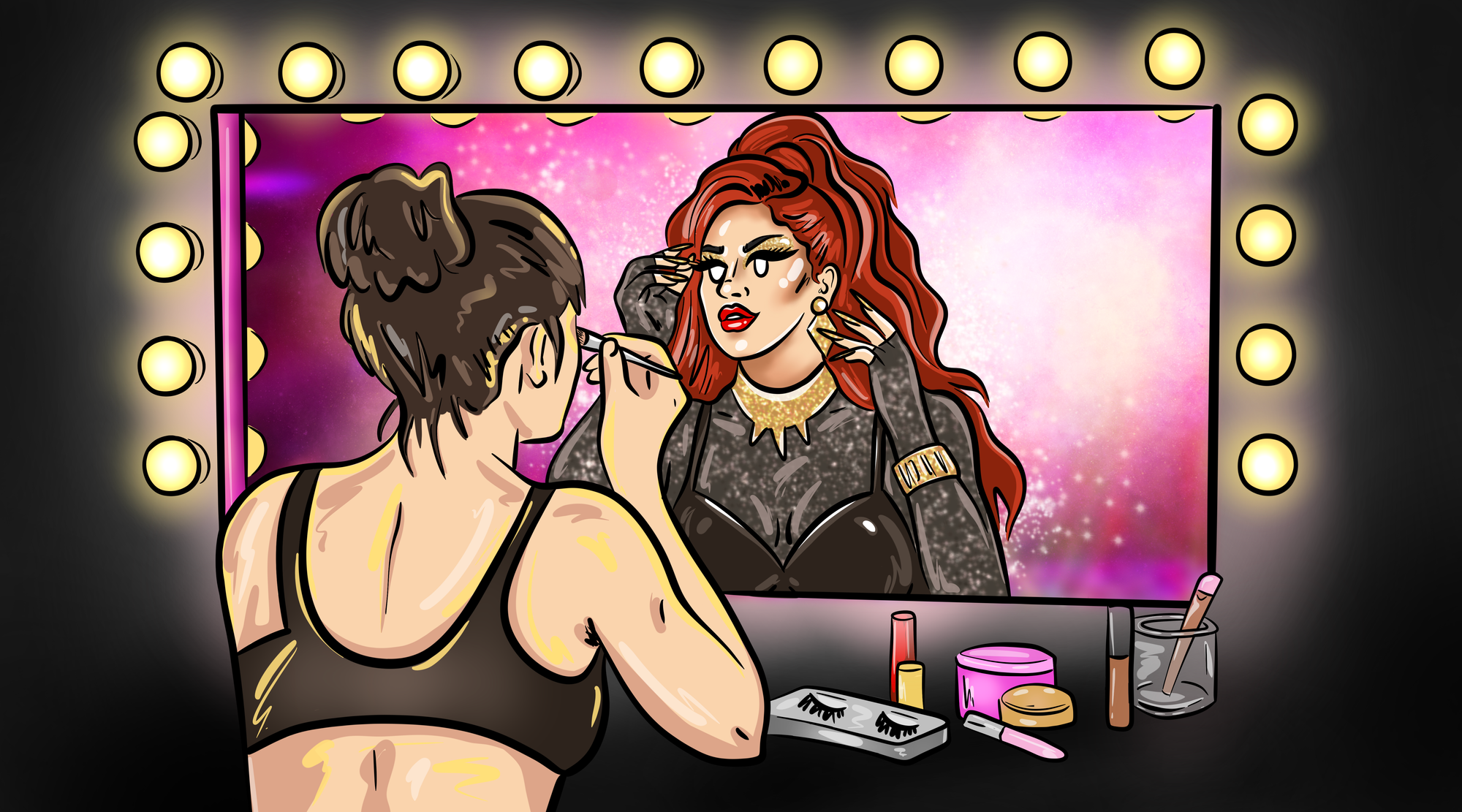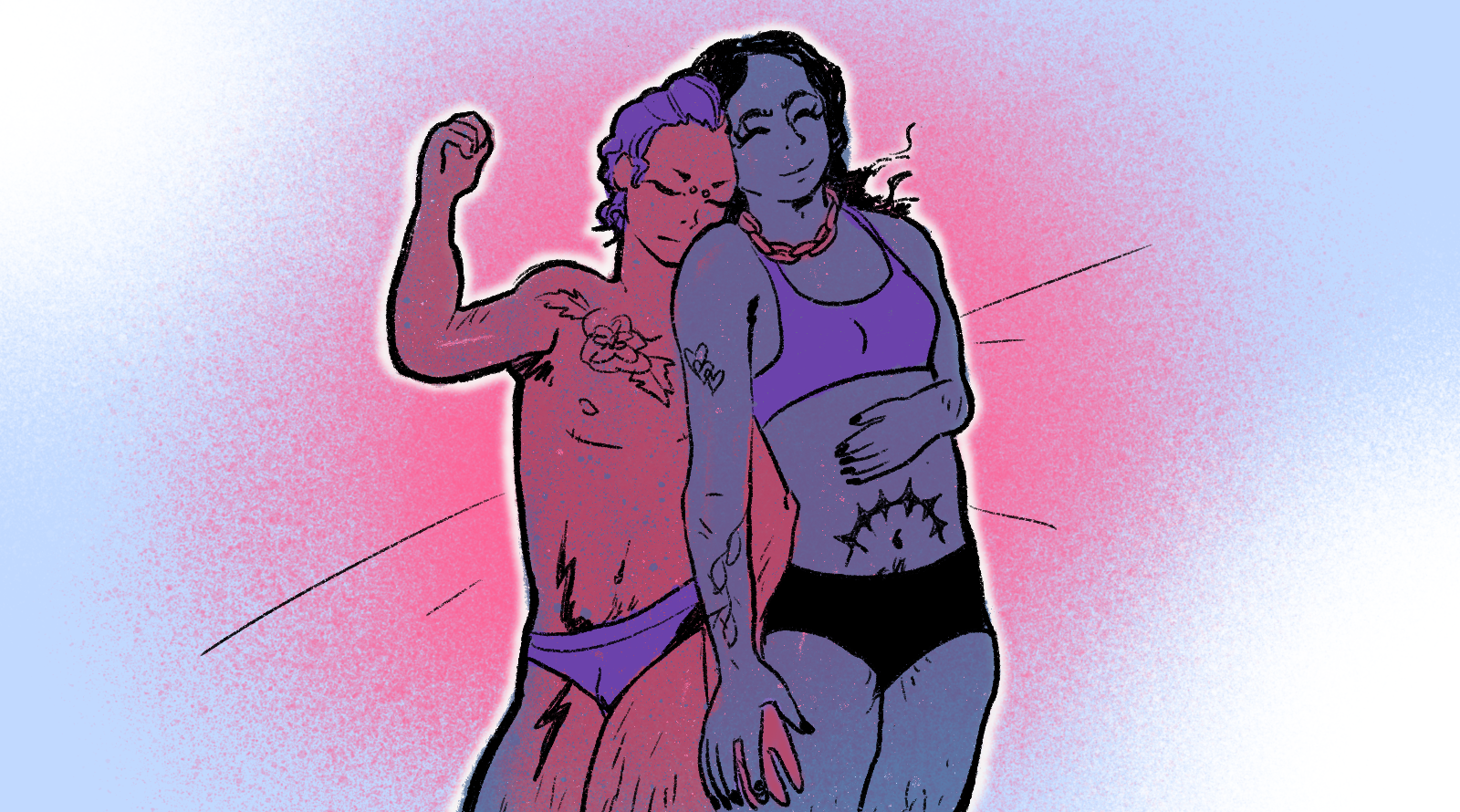Sex work in the age of social media is in a strange place. On one hand, it’s more visible than ever. Platforms like OnlyFans, ManyVids, and various camming sites have given thousands of people, particularly women and queer folks, unprecedented access to income, creative control, and global audiences. On the other hand, visibility doesn’t automatically translate into real-world respect. People repost educational infographics, use the right terminology, and insist they “respect the hustle”. But this acceptance is often aesthetic: it looks good on Instagram, it signals open-mindedness, it aligns with feminism-as-brand. That doesn’t mean it extends into messy, real-world scenarios.
Even in progressive circles, where friends proudly post your OnlyFans link or talk about “supporting sex workers,” there’s a subtle line where that acceptance hits a wall, usually when men’s romantic or sexual insecurities get involved. It’s a peculiar paradox: your friends might champion your autonomy, your hustle, your boundaries, and your right to work how you want. But introduce their boyfriends into the mix, and suddenly the air shifts. There’s an edge of suspicion, territorial behavior, or outright disrespect that peeks through the polite smiles.
This tension reflects a broader cultural double standard, where sex work is praised as an aesthetic or political idea, but mistrusted, sexualized, or even vilified in the intimate sphere. This performative allyship mirrors broader patterns in activism: people like to align themselves with marginalized groups when it earns them social capital, but withdraw when it costs them comfort.
Sex work in the age of social media is in a strange place.
In relationships, this can take a heavier toll, especially with cishet men. Men will claim to accept sex work but still set arbitrary boundaries: “I’m fine with you doing content, but only solo stuff,” or “No private customs for men,” or “Don’t work with anyone I know.” These rules are rarely about safety; they’re about control. They’re a way to claim openness while still keeping the power dynamics of traditional monogamy intact. The irony is that sex work requires high levels of communication, boundary-setting, and emotional labor—qualities that make for healthy relationships. Yet, many don’t recognize these as skills. Instead, they focus on their discomfort, centering their feelings while dismissing the lived reality of the worker.
There’s a reason so many men say they’re “fine” with sex work until it gets personal. In the abstract, it’s easy to present yourself as progressive: you can say you support decriminalization, you can like sex-positive tweets, you can make a big deal out of how you’re “not threatened” by your partner’s sexual autonomy. But when feelings, jealousy, and the performative nature of masculinity collide, the mask often slips. They want the fantasy of the “cool girlfriend” , the one who’s adventurous and hot, who other men find attractive, but only if that desirability is contained and exclusively available to them.
Sex work disrupts that containment. The work itself, whether it’s selling photos, camming, stripping, or full-service, is not inherently a threat to a relationship. But in the male imagination, it becomes one, because the cultural script tells them that a “good partner” must own and guard a woman’s sexuality. This double standard is amplified when you’re not even dating the man in question. Friends boyfriends treat you like a ticking time bomb, assuming your presence will somehow undermine their relationship. They’ll project fantasies or insecurities onto you, interpreting your mere existence as flirtation or competition.
There’s a reason so many men say they’re “fine” with sex work until it gets personal.
It’s exhausting because it isn’t about your behavior, it’s about their learned beliefs about sex, possession, and respectability. And what pisses me off the most is that when men are uncomfortable with sex work, they rarely frame it as jealousy outright. Instead, it’s dressed up as “concern” or “values”. They’ll say they “don’t agree with it” because of how “exploitative” it is, or because “it’s not a real career,” as if their disapproval is rooted in moral or economic critique rather than personal insecurity. This is so unbelievably frustrating because you know many of these same men consume adult content regularly—they just prefer it to come from women they don’t know personally, so they can enjoy the fantasy without confronting the reality.
The exhausting part isn’t just the potential for disrespect, it’s the constant emotional management required to navigate these possibilities. Sex workers are used to setting boundaries in professional contexts, but in dating, boundaries get tangled with vulnerability, intimacy, and affection. If a partner reacts poorly, it’s not just a business inconvenience, it’s heartbreak. Respect for sex work cannot be conditional, tied to whether a man feels secure, whether he finds you attractive, or whether he can “brag” about you. It must be rooted in recognizing sex work as legitimate labor, worthy of the same baseline dignity afforded to any other job. When partners refuse to confront their own double standards, they perpetuate the stigma that makes sex work more dangerous by pushing it underground, by silencing open conversation, and by treating workers as either fantasy objects or moral liabilities. This stigma bleeds into laws, into workplace discrimination, into safety risks. And yes, it also bleeds into dating apps and awkward dinner parties with your friend’s new boyfriend.
For more on performative allyship from the Tryst Link blog, see Advocacy or Ego? What NOT to Say to Be a Good Ally and How To Talk About Us (And Not Over Us!)
Are you a sex worker with a story, opinion, news, or tips to share? We'd love to hear from you!
We started the tryst.link sex worker blog to help amplify those who aren't handed the mic and bring attention to the issues ya'll care about the most. Got a tale to tell? 👇☂️✨





